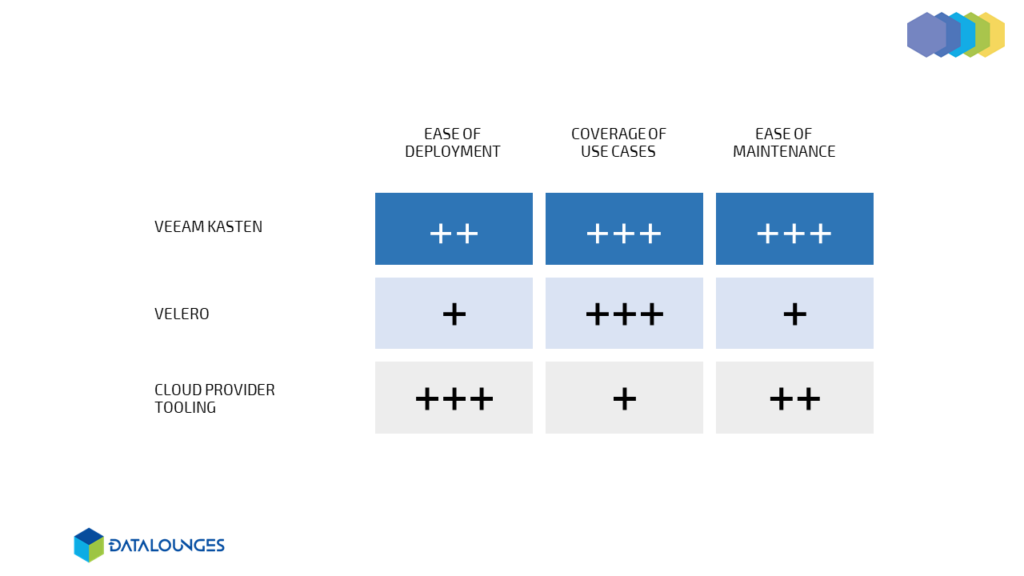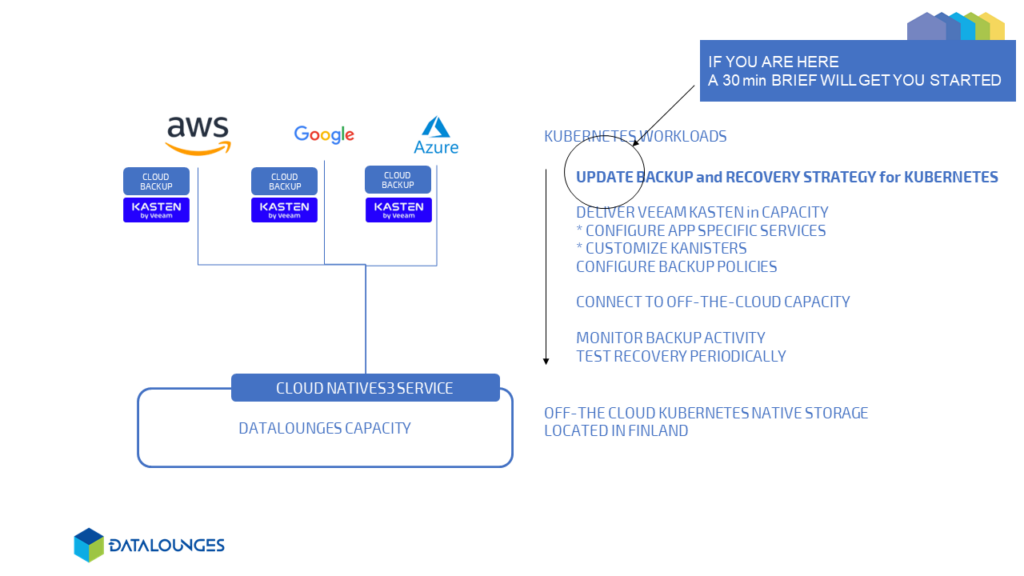Access recording of Veeam Kasten | Datalounges demo webinar about protecting Kubernetes applications
It is not propably the first thing you consider, but eventually when your Kubernetes estate runs something critical – backup, recovery and data protection are going to become a topic. Kubernetes data management has come a long way both in the platform but also when it comes to supporting tooling.
But do Kubernetes and Cloud Native applications actually need protection?
Certainly there is a strong case if there are concerns related to any or all of the following items
- Stateful applications will have data that might be needed to recover the operations.
- Security concerns should be top of mind and if a risk of potential ransomware attack or cloud root hack is identified as something that requires addressing, a disaster recovery scenario should be considered
- Could there be a possibility of misconfiguration or a software pipeline problem/attack that is complicated to root out and identify
- Is there a compliance control that needs to be addressed. Most compliance frameworks consider business continuity and data protection and somehow that needs solving
- Can we identify a situation where recovery to the same environment where operations run today is not for some reason possible
All of these are advaced Day 2 concerns that a more mature operation will consider. On top of this there is the matter of available skills and access to advanced Kubernetes troubleshooting capabilities. Recovering a Cloud Native application can be a complex effort, such problem solving skills are not always easily available and a straightforward mechanism will make recovery planning (and testing) easier.
Finally, time might be of essence. In principle the steps to get a Kubernetes application up and running may be easy to document. Especially in resource constrained environments however, getting the app up and running may instead of minutes take hours. A well thought through recovery strategy supported by tooling will cut this time to a fraction.

When considering how to support recovery efforts, businesses relying on Kubernetes and Cloud Native applications have some available options to consider. Mainly Open Source tooling, cloud provider services and software vendor tooling. Each have their use-cases and scenarios where fit makes sense. A few things to consider include
- How much time are we willing to invest into backup and recovery capability. Employee or consultant time that keeps a more generic tool operational and adjustments to infrastructure changes also accumulate costs. This maintenance can become a significant burden over time dependent if the organization is not willing to subscribe to development of such capability
- What are the scenarios expected from this capability. Do we need to be able to recover to another cloud infrastructure. Would we just need to recover single pods or components of the app. Are the cloud provider database services involved? Some of these are out-of-the-box functionalities and some require significant development effort – and later maintenance. This should be included in the equation when considering recovery options
- Who will operate the services. Is there a Kubernetes specialist available to drive the recovery process or will there be an otherwise competent administrator with limited cloud native experience. The latter will require instructions, support and often a more straightforward user experience than a cli. This will greatly affect potential success of the recovery effort.
To help customers evaluate their options and consider next steps Datalounges has set up services and partnerships to support customer disaster recovery preparedness.

Disaster recovery, backups and data protection start with planning. If there is now backup strategy or recovery planning in place for your Kubernetes estate, it is likely that you should consider building one. A great way to get acquainted with the challenges is to visit the recording of the Veeam Kasten | Datalounges webinar – or book a quick briefing with Datalounges by contacting sales@datalounges.com

